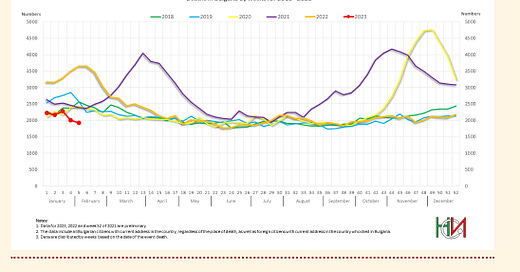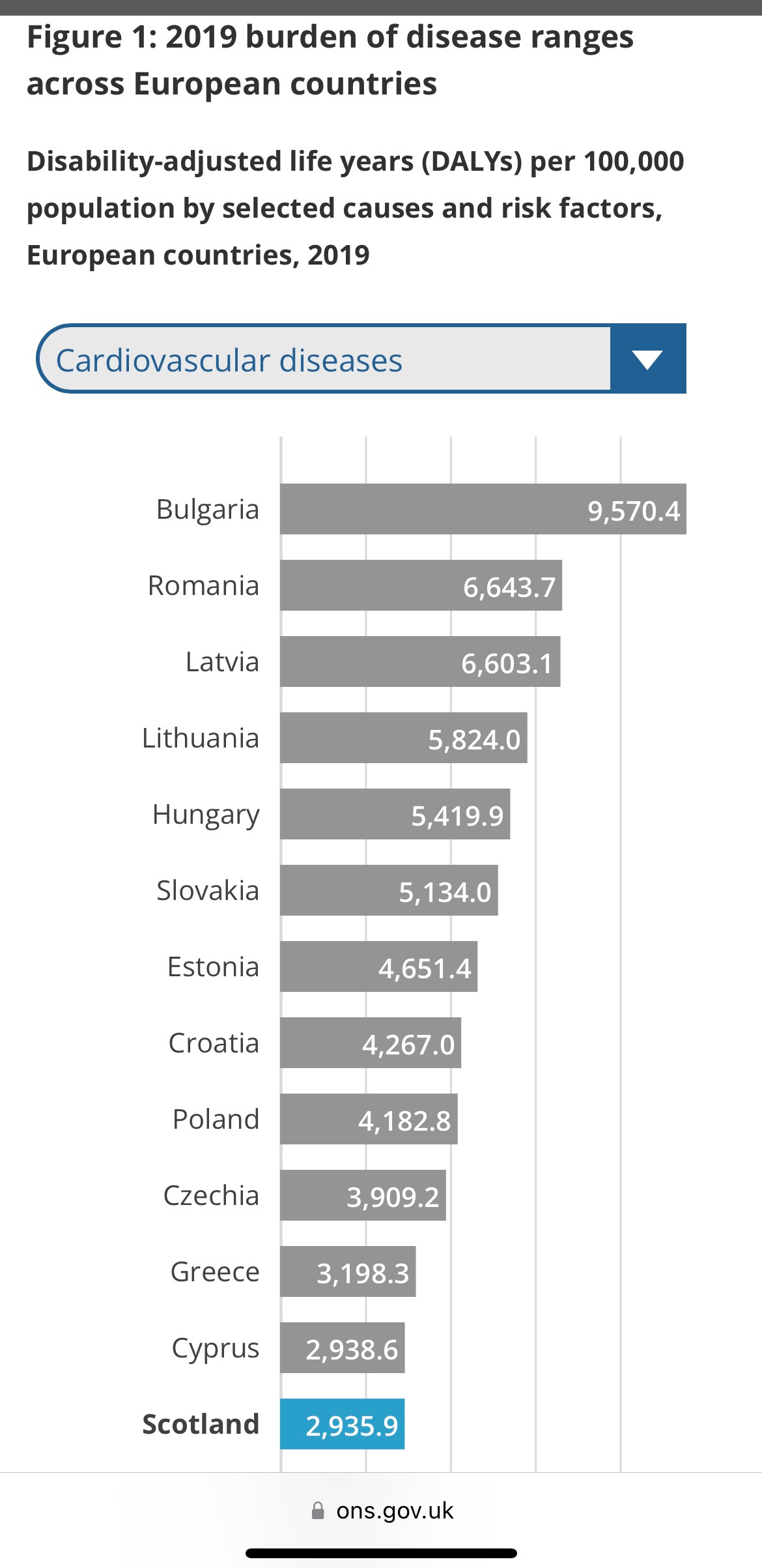The good news: death rates have now fallen far below normal. The bad news: only in Bulgaria.
True story. No points for guessing what product Bulgaria hardly used. Here's a hint: mRNA Covid jabs.
Bulgaria is good at counting its dead.
The country’s National Statistical Institute compiles death figures weekly and releases them in English once a month.
They tell a story that mRNA jab advocates may not want to hear.
Bulgaria has very low Covid vaccination rates, likely because generations of Communist misrule left Bulgarians deeply suspicious of government promises of miracle cures.
And Covid hit Bulgaria hard from late 2020 through early 2022. The epidemic tore through unhealthy middle-income Eastern European countries, and Bulgaria has rates of smoking, obesity, and cardiovascular disease that are off the charts. Its Covid death rate was more than double that of Western European countries like Spain, and its overall mortality rate higher still.
But now the epidemic is over. And deaths in Bulgaria are plunging - not just to normal, but well below it.
—
(SIGN UP NOW FOR EVERYTHING YOU WANTED TO KNOW ABOUT DEATHS IN BULGARIA BUT WERE AFRAID TO ASK)
—
(Weekly deaths in Bulgaria over the last six years: the red line is 2023. The second chart is just a highlight to show just how far below normal deaths have now fallen. They’re low even by summer standards.)
—
To be clear, at this point Bulgaria’s overall excess death rate since the epidemic began is still higher than wealthier nations that used the mRNA jabs - so it may not seem like the best argument that the jabs have long-term or hidden dangers.
Why not discuss poor African countries that didn’t use the mRNA shots at all and had almost no Covid deaths?
First, African countries have populations that are just too young to allow for meaningful comparisons to Europe (and don’t have very good death statistics). Bulgaria is a more meaningful comparison demographically.
But even more importantly, the recent trends in Bulgaria are exactly what scientists and demographers predicted when Covid began in 2020.
The coronavirus almost exclusively kills the very old, very frail, and very obese. Many of the deaths it caused would have died within months or at most a year or two in any case - a phenomenon known as the “pull-forward” effect.
Thus deaths were expected to drop after the epidemic ended. As Thomas Ryan, the chief executive of Service Corporation International, the largest for-profit funeral home operator, said in February 2022:
As the year goes on, we would anticipate that the COVID impact becomes immaterial and that we should begin to see the pull-forward impact from 2020 and 2021 having a mildly negative effect on funeral volumes and at-need cemetery revenue, thereby making the quarterly comparisons increasingly more difficult.
—
Instead, deaths remain well above normal in Western Europe, the United States, and Asia-Pacific nations that used the mRNAs. Vaccine advocates have tried to argue those deaths must be resulting from “long Covid” and more specifically Covid’s aftereffects on the heart.
But Bulgaria suffered severe multiple waves of Covid infections and has off-the-charts rates of cardiovascular disease:
—
Because of the severity of its epidemic, Bulgaria also endured harsh lockdowns and significant societal disruption in 2020 and 2021.
In other words, all the excuses for excess mortality that vaccine advocates offer to explain away the current extra deaths in Western Europe also apply to Bulgaria. Yet, somehow, deaths in Bulgaria have not just returned to normal but fallen below.
At this point no one can know how long the Bulgarian death holiday (okay, it’s more of a staycation, plenty of people are still meeting their maker) will last.
But with each extra week this winter that Bulgaria reports below-normal deaths while Western European countries run hot, the concerns about the mRNAs will get sharper.







Have you considered that all these deaths are from suicide over still having to hear about Covid?
Key sentence in the article:
Bulgaria has very low Covid vaccination rates, likely because generations of Communist misrule left Bulgarians deeply suspicious of government promises of miracle cures.
Ring a bell? Sure rings mine!